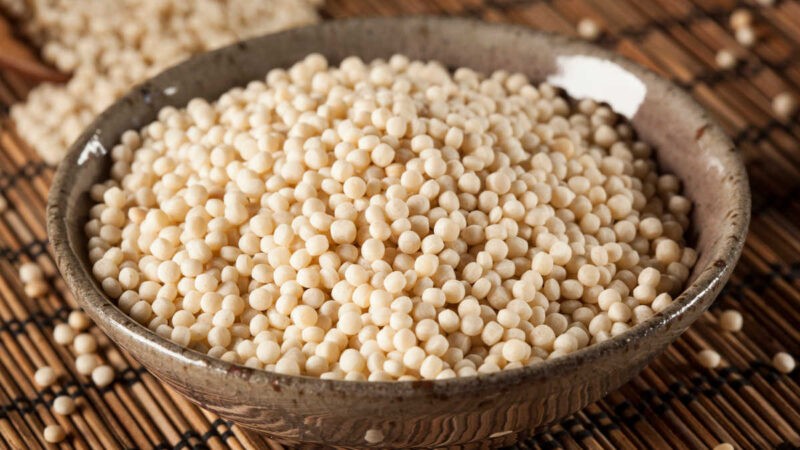
Couscous, a pasta product made from crushed durum wheat semolina, has gained popularity as a versatile food ingredient in human diets. For dog owners wondering about its safety for canine consumption, the consensus from veterinary sources is that plain couscous can be safely fed to most dogs in moderation. This tiny pasta offers nutritional benefits through its protein, fiber, selenium, and vitamin content. However, proper preparation, portion control, and awareness of individual dietary sensitivities are crucial considerations. Dogs with wheat allergies or gluten intolerance should avoid couscous entirely, while healthy dogs can enjoy it as an occasional treat when served plain and unseasoned.
Nutritional Benefits and Risks of Couscous for Dogs
Nutritional Value
Couscous provides essential nutrients beneficial for dogs including selenium, which helps cell function and may help prevent cancer. It is rich in magnesium, protein, vitamin B6 and contains healthy carbohydrates that provide energy. The fiber content aids in digestive health and helps dogs feel fuller for longer periods.
Safety Precautions
While plain cooked couscous is safe for most dogs, certain precautions must be taken. Dogs with wheat allergies or gluten sensitivities should avoid couscous completely. When preparing couscous for dogs, it must be:
- Cooked thoroughly to improve digestibility
- Served plain without seasonings
- Given in moderation to prevent weight gain
- Free from additives like salt, garlic, or onions which can be toxic
- Not served as a meal replacement but rather as an occasional treat
What is Couscous and Can Dogs Eat It
Understanding Couscous
Couscous is not actually a grain but rather tiny pasta made from crushed durum wheat semolina. It comes in three distinct varieties: Lebanese (largest), Israeli (medium), and Moroccan (smallest). While often confused with rice, couscous is technically a wheat-based pasta product.
Feeding Guidelines
Dogs can safely consume couscous as part of a balanced diet, though serving size matters. When feeding couscous to dogs:
- Purchase plain varieties rather than pre-seasoned options
- Cook thoroughly before serving
- Mix with protein sources like boiled chicken
- Limit portions to prevent excess calorie intake
- Consider it as an occasional treat rather than a staple food
Note: Unlike the previous section which focused on nutritional aspects and safety precautions, this section specifically defines what couscous is and provides practical feeding guidelines for dog owners.
Health Benefits & Risks of Feeding Couscous to Dogs
Antioxidant Properties and Disease Prevention
While previous sections covered basic nutritional value, this section focuses specifically on disease prevention. According to research, couscous contains selenium which helps prevent cancer and supports proper cell function. However, excessive selenium intake can be harmful, necessitating careful portion control.
Digestive System Impact
Unlike previous discussions on safety precautions, this section examines specific digestive effects. When uncooked couscous comes in contact with water, it expands significantly, potentially causing:
- Stomach discomfort
- Digestive blockages
- Gastrointestinal upset To prevent these issues, couscous should always be pre-cooked before feeding. Additionally, the FDA has found that completely grain-free diets may increase the risk of canine heart disease, making moderate couscous consumption beneficial for most dogs.
Preparation Methods and Varieties for Dogs
Cooking Techniques
While previous sections covered basic feeding guidelines, this section focuses on specific preparation methods. Couscous should be cooked in plain water without any broth or seasonings. The three varieties require different cooking approaches:
- Moroccan (smallest): Quick 5-minute steam
- Israeli/Pearl (medium): 10-15 minutes simmering
- Lebanese (largest): 15-20 minutes cooking time
Serving Suggestions
Unlike previous discussions on portion control, this section provides specific mixing recommendations. Couscous can be combined with:
- Plain boiled chicken breast
- Steamed pumpkin
- Cooked broccoli The mix should maintain a ratio of approximately 25% couscous to 75% protein/vegetables to ensure balanced nutrition while preventing excess carbohydrate intake. Homemade combinations should be approved by a veterinarian before regular feeding.
Conclusion
Based on the research, dogs can safely consume couscous as an occasional treat when properly prepared, though it should not serve as a meal replacement. This wheat-based pasta product offers beneficial nutrients including selenium, magnesium, protein, and vitamin B6, while providing healthy carbohydrates and fiber that support energy levels and digestive health. However, several important precautions must be taken: couscous should always be thoroughly cooked to prevent digestive issues, served plain without seasonings or additives, and given in moderation to prevent weight gain.
The key implications for dog owners are to ensure proper preparation methods based on the specific variety of couscous (Moroccan, Israeli, or Lebanese), maintain appropriate portion control with a ratio of 25% couscous to 75% protein/vegetables, and consult with a veterinarian before making it a regular part of their dog's diet. Dogs with wheat allergies or gluten sensitivities should avoid couscous entirely. When these guidelines are followed, couscous can be a safe and nutritious addition to a balanced canine diet.